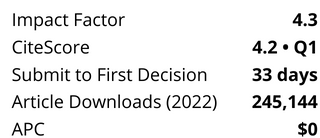Biosand filters (BSFs) have been used widely as an efficient, inexpensive, and appropriate point-of-use technology. Several organizations are promoting filters without adequate testing, which may not lead to sufficiently safe devices. The objective of this study was to evaluate the performance of a modified biosand filter (MBSF) with an extra disinfection layer (brass or zero valent iron (ZVI)) and three layers of underdrain in a range of parameters including Escherichia coli, total coliform, turbidity, pH, and dissolved oxygen. On average, a 91.29% reduction (log 1.43) in total coliform, 98.7% reduction (log 2.6) in E. coli and 88.71% reduction in turbidity were observed for the control. There was a 90.11% reduction (log 1.41) in total coliform, 98.2% reduction (log 2.25) in E. coli, and 88.5% reduction in turbidity for MBSF brass. A 96.93% reduction (log 1.81) in total coliform, 97.33% reduction (log 2.36) in E. coli and 91.5% reduction in turbidity for MBSF ZVI were observed. Adding brass as a disinfection layer in MBSF did not improve bacteria and turbidity removal rates. Adding ZVI as a disinfection layer gave better turbidity and total coliform removal relative to control and MBSF brass. Water quality remained within drinking water standards for all filters.
Skip Nav Destination
Article navigation
12 May 2016
This article was originally published in
Journal of Water Supply: Research and Technology-Aqua
Article Contents
Research Article|
January 29 2016
Performance assessment of modified biosand filter with an extra disinfection layer
Banu Sizirici Yildiz
1Civil Environmental and Infrastructure Engineering Department, Khalifa University, PO Box 127788, Abu Dhabi, UAE
E-mail: banu.yildiz@kustar.ac.ae
Search for other works by this author on:
Journal of Water Supply: Research and Technology-Aqua (2016) 65 (3): 266–276.
Article history
Received:
September 22 2015
Accepted:
December 10 2015
Citation
Banu Sizirici Yildiz; Performance assessment of modified biosand filter with an extra disinfection layer. Journal of Water Supply: Research and Technology-Aqua 12 May 2016; 65 (3): 266–276. doi: https://doi.org/10.2166/aqua.2016.103
Download citation file:
Sign in
Don't already have an account? Register
Client Account
You could not be signed in. Please check your email address / username and password and try again.
Could not validate captcha. Please try again.




%20cropped.png?versionId=5947)